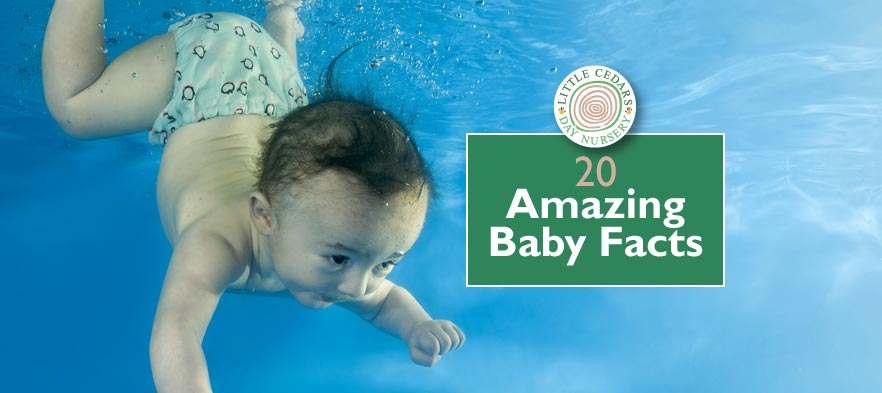
When preparing articles for this website, we often spot interesting baby facts that may surprise people. So, today, we thought we’d share 20 or so of our most surprising discoveries with you. Many are a reminder of just how amazing babies really are!
1. Twenty Babies Born A Minute
Did you know, one baby is born every three seconds. That’s 20 every minute, 1200 every hour and nearly 29,000 every single day.
2. Rapidly Expanding Brains
A baby’s brain will more than double in size in their first year. By the time they’re five, it will have tripled in size compared to its size at birth. The brain will not finish fully developing, however, until the individual reaches their twenties. The brain of newborn boys may also grow faster in the first 3 months than that of newborn girls. It’s something that’s keenly debated amongst experts, though.
 3. Almost 50% More Bones Than Adults
3. Almost 50% More Bones Than Adults
Babies are born with more bones than adults. In time, some will harden and fuse together into just a single bone. Babies’ heads have soft spots when newly born, but which don’t last. That’s because various, separate, bones form their skull at birth. Initially these are connected by something called ‘noggin’, but later the separate skull bones fuse together. Babies are born with around 300 bones. By the time they’re adult’s they will have just 206.
4. But No Kneecaps
Babies do not have kneecaps when they’re born! Had you ever noticed? These finish appearing only once the baby reaches at least 6 months of age.
5. Amazing Taste
Babies have about 30,000 taste buds when they’re born. This is three times as many as adults. This is accounted for by the baby having taste buds not only on their tongue, but also on the sides and roof of their mouths as well as on the tonsils and back of the throat. Despite this, they apparently can’t taste salt until they’re about 4 months old.
 6. Not So Hot on Eye Sight
6. Not So Hot on Eye Sight
Newborn babies are short sighted, only being able to properly focus on an area 8 to 14 inches in front of them — that’s perfect for seeing mum when being breastfed when you think about it. This area of focus will increase with time, of course, and babies also use their peripheral vision to make up for the lack of deeper focus.
7. Fur, Gills & a Tail — Yes, Really!
According to the experts, foetuses have gills, fur and even a tail during development. All three end up disappearing either before birth or, often in the case of fur, within the first few weeks after being born. The tail will have become the coccyx and the ‘gills’, which are temporary slits (pharyngeal arches) in the neck, will have developed into jaw and ear bones by the time the babies have been born.
8. No Tears for Weeks
Babies don’t cry tears until they’re about a month old. Until then, it’s rather like ‘dry’ crying.
 9. Natural Born Swimmers (… Kind of)
9. Natural Born Swimmers (… Kind of)
Newborns hold their breath underwater automatically and even adapt their heart rate and peripheral blood vessels when doing so. We strongly advise against you testing this, of course, but apparently it’s true. This natural ability does not last past the age of six months, however.
10. Baby Time in the Womb
Some interesting statistics suggest that, on average, female babies remain in the womb a day longer than males, white babies remain there 5 days longer than black babies and Indian babies remain there 6 days longer than white babies. If true and not simply a momentary glitch, the reasons for this are a bit of a mystery.
11. No Memory Before Three
People’s long-term memories go back no earlier, in general, than the age of three. This is believed to be because either memory function hasn’t developed sufficiently until then or because memory may be tied to the ability to understand language.
12. Recognising Day & Night
It can take up to 12 weeks before a baby will recognise the difference between day and night. Hence, the irregular sleep pattern that can last until they’re 5 or so months of age.
13. Eyes to the Right
85% of newborn babies prefer to face to the right when lying on their back. The preference only lasts a few months, but may also be an indicator of whether they’ll turn out to be right-handed or left-handed.
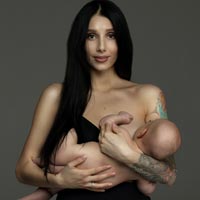 14. Is Breast Really is Best?
14. Is Breast Really is Best?
As well as protecting against diseases, breastfeeding babies for at least 2 months halves the risk of Sudden Infant Death Syndrome (SIDS) — that’s incredible when you think about it. It also gives greater protection from SIDS the longer you continue.
15. And Breast Milk Adapts Like Magic
Expressed breast milk for a baby should never exceed 4oz per bottle no matter what age they are. While formula-fed infants have bigger bottles as they grow older, babies fed via bottles containing expressed breast milk should stick to 4oz (1 to 1½oz per hour) maximum. That’s because the breast milk adapts itself to their precise needs as they grow; it constantly changes its composition as the child gets older and that includes calorie content contained per ounce. That’s clever!
 16. The Only Smiling Primate
16. The Only Smiling Primate
Human babies are the only primate babies that smile at their mother or father. That’s quite remarkable, although we wonder whether other primates have a different way of smiling that we don’t recognise or understand.
17. Special Birth Months
According to statistics, the most common date of birth is the 9th of September. This is closely followed by the 19th, 12th and 17th of September, in that order. Interestingly, babies born around this time stand the best chance of being the smartest in the class and going on to have the greatest success in life. We considered whether this could be linked to school starting in September, making these children the oldest, most mature pupils in the class at a time when learning and development is so crucial.
Meanwhile, people born in October seem to live the longest, living on average 160 more days than those born in the Spring.
Scientific evidence also points to the month of birth affecting personality. For example, those born in the summer months having the most optimistic outlooks.
18. And the Not So Special
Meanwhile, December, January and February are the least common months for births, with December 25th and 26th seeing the fewest during the entire year.
 19. Outcomes of Being First Born
19. Outcomes of Being First Born
Children who are first-born are 1.7 times more likely than their younger siblings to live to the age of one hundred. Those with young mothers at birth stand the greatest chance of doing so. The first born is statistically more likely to have better mental health but have a slightly higher propensity to be overweight or have high blood pressure. Firstborns are often natural leaders but younger siblings may experience that simply as bossiness when growing up!
20. The Origins of ‘Infant’
The term ‘infant’ comes from the Latin ‘infans’, which means ‘unable to speak‘ … which makes sense, when you think about it.
We hope that you have found these surprising facts of interest and have perhaps learned something you didn’t know before — we certainly enjoyed putting them together for you.
High Quality Childcare in Streatham
 We are Little Cedars, a pre-school and childcare nursery in Streatham. As well as being one of the best nurseries in the London SW16 area, we would also make a convenient choice for anyone requiring childcare nurseries, pre-schools or playgroups in/around Balham, Tooting, Norbury, Colliers Wood, Furzedown, Streatham Common, Streatham Hill and Streatham Park. Why not book a visit, register for a nursery place, or ask any questions — our childcare professionals are here to help:
We are Little Cedars, a pre-school and childcare nursery in Streatham. As well as being one of the best nurseries in the London SW16 area, we would also make a convenient choice for anyone requiring childcare nurseries, pre-schools or playgroups in/around Balham, Tooting, Norbury, Colliers Wood, Furzedown, Streatham Common, Streatham Hill and Streatham Park. Why not book a visit, register for a nursery place, or ask any questions — our childcare professionals are here to help:
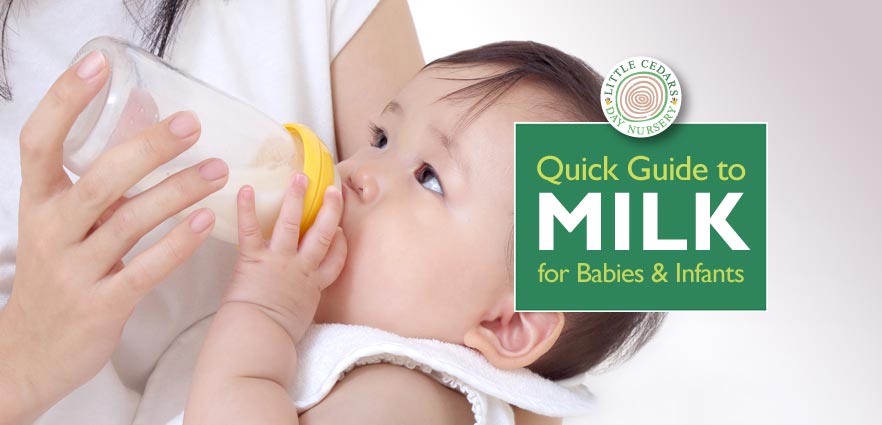
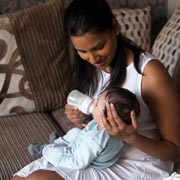 Our “Benefits of Breastfeeding” post described in great detail how breast milk really is nature’s perfect food for babies. It’s tailored to the needs of the baby and even adapts as the baby grows. As well as essential vitamins, minerals, fats and proteins, it also passes antibodies, hormones and polyunsaturated fatty acids to the baby. All these things are incredibly important to the growing infant and many are simply not possible with formula milk and alternatives to breast milk. That said, there are many reasons why parents may switch to other alternatives and that’s where today’s guide should prove most useful.
Our “Benefits of Breastfeeding” post described in great detail how breast milk really is nature’s perfect food for babies. It’s tailored to the needs of the baby and even adapts as the baby grows. As well as essential vitamins, minerals, fats and proteins, it also passes antibodies, hormones and polyunsaturated fatty acids to the baby. All these things are incredibly important to the growing infant and many are simply not possible with formula milk and alternatives to breast milk. That said, there are many reasons why parents may switch to other alternatives and that’s where today’s guide should prove most useful. The variety of formula milks is surprisingly large, not helped by the fact that different brands call some of them by different names. Some products and names also seem to have been developed in order to cover small niches, many of which are actually already adequately covered by larger, existing product lines (‘Toddler Milk’ and ‘Growing-Up Milk’ are two examples cited by the NHS). Then add in the fact that many are sold as liquid and also as powder that needs to be made up. The choice can be overwhelming, which is where the following guide can help …
The variety of formula milks is surprisingly large, not helped by the fact that different brands call some of them by different names. Some products and names also seem to have been developed in order to cover small niches, many of which are actually already adequately covered by larger, existing product lines (‘Toddler Milk’ and ‘Growing-Up Milk’ are two examples cited by the NHS). Then add in the fact that many are sold as liquid and also as powder that needs to be made up. The choice can be overwhelming, which is where the following guide can help …

 3. Almost 50% More Bones Than Adults
3. Almost 50% More Bones Than Adults 6. Not So Hot on Eye Sight
6. Not So Hot on Eye Sight 9. Natural Born Swimmers (… Kind of)
9. Natural Born Swimmers (… Kind of) 14. Is Breast Really is Best?
14. Is Breast Really is Best? 16. The Only Smiling Primate
16. The Only Smiling Primate 19. Outcomes of Being First Born
19. Outcomes of Being First Born We are Little Cedars,
We are Little Cedars, 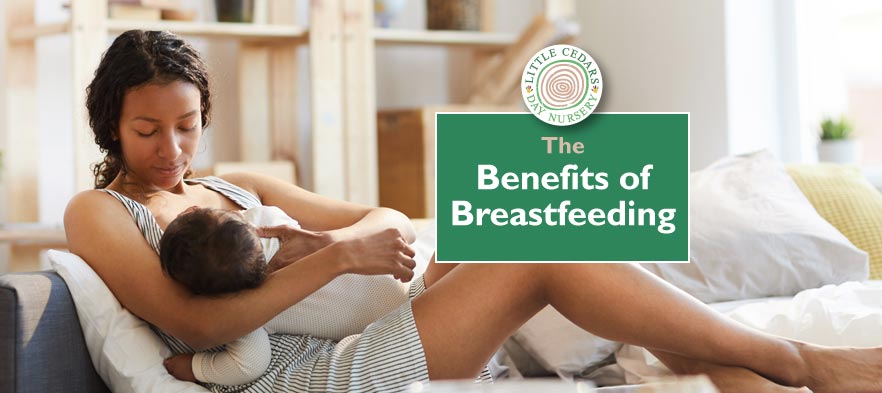
 Babies benefit enormously from breast milk; from simple, practical considerations to major health benefits, many of which continue to benefit them into adulthood. Let’s take a look:
Babies benefit enormously from breast milk; from simple, practical considerations to major health benefits, many of which continue to benefit them into adulthood. Let’s take a look: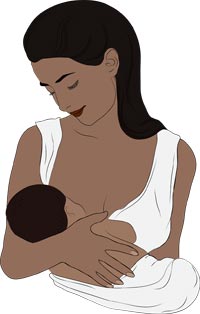 Breastfeeding also has a range of significant health (and other) benefits for mothers. These include:
Breastfeeding also has a range of significant health (and other) benefits for mothers. These include: The childcare professionals at Little Cedars Nursery are keen to fall in with the wishes of parents when it comes to baby and infant milk. To that end, parents are free to supply
The childcare professionals at Little Cedars Nursery are keen to fall in with the wishes of parents when it comes to baby and infant milk. To that end, parents are free to supply 